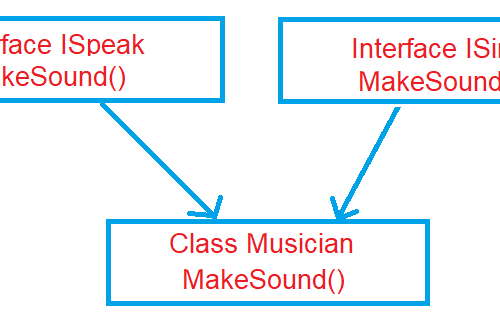Exploring C# Record vs Class 2024
Introduction Record vs Class c# :
Understanding the nuances between C# record vs class is essential for crafting efficient and maintainable code. In this blog post, we’ll dive into the distinctions between these two constructs, examining their features, use cases, and performance implications through practical examples. Whether you’re a seasoned C# developer or just starting, mastering the differences between record vs class will enable you to make better design decisions in your projects.
What is Class in C#?
In C#, classes serve as blueprints for creating objects. They encapsulate data and behavior, offering flexibility and extensibility in your codebase. Let’s consider a classic example of a Person class:
public class Person
{
public string Name { get; set; }
public int Age { get; set; }
public Person(string name, int age)
{
Name = name;
Age = age;
}
public void PrintDetails()
{
Console.WriteLine($"Name: {Name}, Age: {Age}");
}
}
In this example, the Person class defines properties for Name and Age, along with a method PrintDetails() to print the person’s information.
Explore What is middleware in c#.
What is Record in C#?
Introduced in C# 9.0, record provide a concise syntax for defining immutable data types. They prioritize data over behavior, reducing boilerplate code and enhancing readability. Let’s redefine the Person example using a record:
public record Person(string Name, int Age);With just one line of code, we define a Person record with two properties: Name and Age. The compiler automatically generates a constructor, properties, equality members, and a ToString() method.
Difference between Record vs Class c# :
- Syntax:
- Classes: Traditional syntax with explicit member declarations.
- Records: Concise syntax with implicit member generation.
- Property Initialization:
- Classes: Manual initialization using constructors or property setters.
- Records: Automatic initialization with positional or named parameters.
- Immutability:
- Classes: Mutable by default, requiring explicit efforts to enforce immutability.
- Records: Immutable by default, promoting safer and more predictable code.
Performance Considerations:
In terms of performance, classes generally incur slightly lower overhead compared to records due to their simpler structure. However, this difference is often negligible for most practical use cases. Records, despite their slightly higher overhead, offer significant benefits in terms of readability and maintainability, especially in data-heavy scenarios. By prioritizing immutability and value semantics, records can lead to more predictable code and reduce the likelihood of unintended side effects, ultimately contributing to a more robust and maintainable codebase.
Choosing the Right Tool for the Job:
When deciding between records and classes in C#, it’s essential to consider the specific requirements and design goals of your project. If you need to model complex objects with behavior or implement inheritance hierarchies, classes may be the better choice. On the other hand, if you’re working with immutable data transfer objects or lightweight entities with value semantics, records offer a more concise and expressive solution. By understanding the strengths and trade-offs of each approach, you can make informed decisions and write code that is both efficient and maintainable.
Explore solid principle in c#.
When to Use Records and When to Use Classes:
- Use Cases for Classes:
- Modeling objects with behavior.
- Implementing inheritance hierarchies.
- Use Cases for Records:
- Defining immutable data transfer objects (DTOs).
- Representing lightweight entities with value semantics.
Record vs Class C#: Performance Benchmarks:
We conducted performance benchmarks comparing classes and records in various scenarios. While classes exhibited slightly faster performance, the overhead introduced by records was negligible for most practical use cases.
FAQs
What are C# classes and records, and how do they differ?
In C#, classes are the fundamental building blocks for defining types, encapsulating data and behavior. Records, introduced in C# 9.0, are lightweight alternatives optimized for immutability and data-centric scenarios. While both can represent data structures, records prioritize immutability and provide a more concise syntax for defining immutable data types.
When should I use a class instead of a record, and vice versa?
Use classes when you need to model complex objects with behavior or implement inheritance hierarchies. Records are ideal for defining immutable data transfer objects (DTOs) or lightweight entities with value semantics. If you prioritize immutability and value semantics over behavior, consider using records.
How do I initialize properties in C# classes and records?
In classes, properties are typically initialized using constructors or property setters. For records, properties can be initialized automatically using positional or named parameters. Records provide a more concise syntax for property initialization compared to classes.
Are records less performant than classes in C#?
In general, records may have slightly higher overhead compared to classes due to additional compiler-generated members. However, the performance difference is often negligible for most practical use cases. Performance considerations should be weighed against the benefits of readability, maintainability, and immutability when choosing between c# records vs classes.
Can records be used with inheritance in C#?
No, records cannot be used with inheritance in C#. Unlike classes, records are sealed by default, meaning they cannot be inherited. Records prioritize simplicity and immutability, and inheritance is not compatible with these design goals. If you need inheritance, consider using classes instead.
How do C# record and classe impact memory usage?
Records and classes consume memory differently based on their structure and usage. Records, being immutable by default, may result in less memory overhead in scenarios where immutability is desired. However, the impact on memory usage depends on factors such as the size of the object, the number of instances created, and the lifetime of the objects.
Can I serialize records and classes in C# using JSON or XML?
Yes, both records and classes can be serialized and deserialized using JSON or XML serialization libraries in C#. Libraries such as Newtonsoft.Json or System.Text.Json provide support for serializing and deserializing both records and classes. Keep in mind any specific considerations related to immutability or constructor requirements when serializing records.
Conclusion:
Understanding the differences between record vs class c# empowers developers to choose the right tool for their tasks. Whether you opt for the flexibility of classes or the conciseness of records, prioritize clarity and maintainability in your codebase. By leveraging the strengths of both constructs, you can write expressive, maintainable, and performant code in C#.



